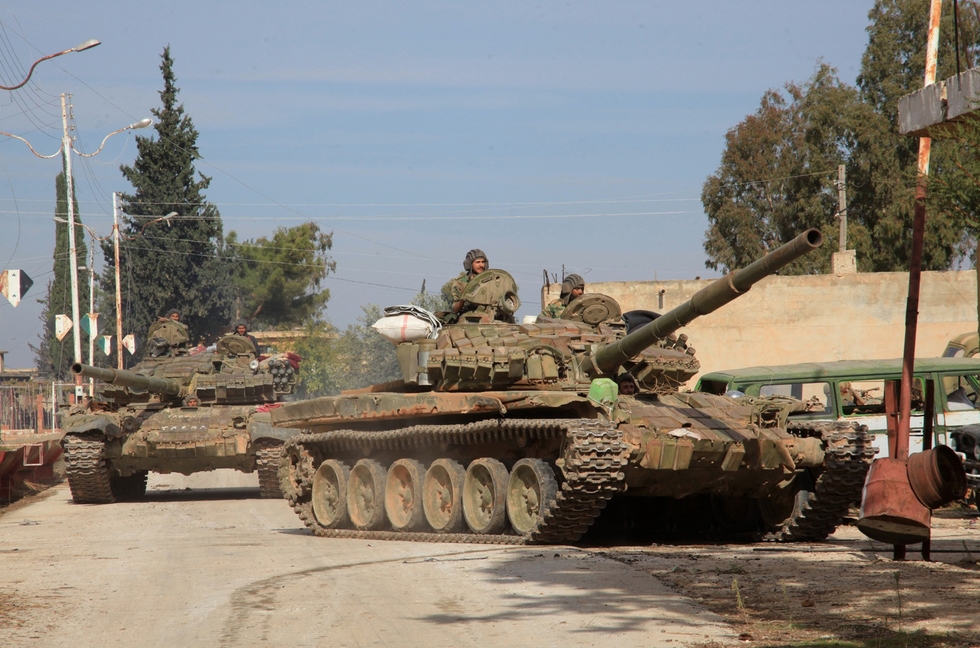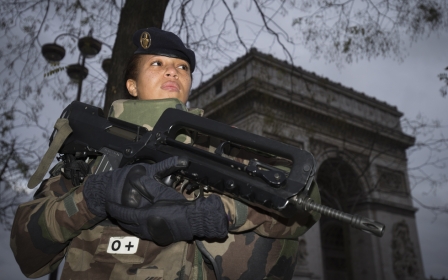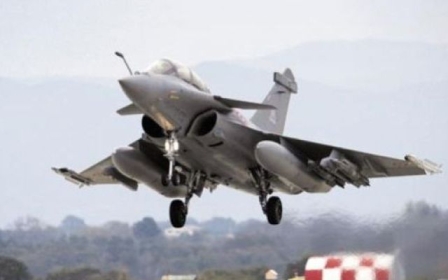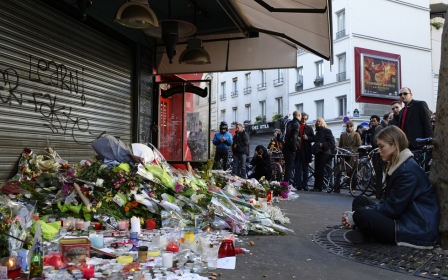The war against IS: An ill-fitting puzzle

For two years, Islamic State fighters surrounded and besieged Kweiris, a military airbase located about 20km east of Aleppo. Trapped inside were approximately 1,000 soldiers. On 10 November, the siege was broken but only with the significant help of Hezbollah and Russian air power, along with Syrian paramilitaries and Iranian elements.
Syrian state television dutifully trumpeted images of the Syrian National Army entering the base, a rare instance when after a string of losses, Bashar al-Assad’s forces could claim a victory.
Two days later, Kurdish peshmerga troops aided by Yazidi fighters and US air strikes launched an offensive to retake Sinjar City in northwest Iraq and, within a day, Massoud Barzani, the president of Iraqi Kurdistan, announced via Twitter that the town had been liberated.
The apparent success of the Sinjar offensive is certainly a serious blow to IS as it cuts off a vital supply route running from Syria to Mosul. That, in turn, may signal the beginning of the long anticipated, but much delayed assault on Mosul, Iraq’s second-largest city and an IS stronghold for more than a year.
So an airbase saved and an IS supply route cut off should be cause for optimism. But look at the players engaged in both offensives: they are like pieces of a puzzle that, try as you might, simply will not fit together.
In Syria, Russia and Iran continue to back President Assad, the former to protect its stake in the region and its naval base at Tartus on the Mediterranean and the latter to underscore its growing role as a power broker in the war against Sunni jihadism. Winning back Kweiris shores up Assad’s reputation but at a cost. It puts his fate even more firmly into the hands of the Iranians and Vladimir Putin. As long as it serves their interests, and so far it very much does, Assad will remain.
The US, on the other hand, has repeatedly insisted that Assad must go, but it has hesitated long and deliberated neurotically over how to achieve that end. The bombing campaign has served to degrade IS battlefield capabilities without ever denting their caliph’s call to “remain and expand”. The longer the jihadists survive this intense aerial bombing, the more they add to their already substantial wins in a propaganda war designed to attract new adherents to the cause of global jihad.
The Kurds have another agenda altogether. Having proven themselves as an effective fighting force against IS, some are pursuing the unlikely vision of a new Kurdish state emerging from the wreckage of Iraq and Syria and even incorporating Kurdish regions of Turkey. Others are pushing for the much more likely reality of a very loose federation, an independent Kurdistan in all but name.
What the Yazidis want is quite simply revenge for the killing of their men and boys, the enslavement and rape of their women, the destruction of their villages and their culture.
So while there is but one IS, tightly knit, ruthlessly run, with a single messianic vision, the forces allied against it are hampered by local factionalism and big power jostling, with competing agendas that pull against one another and benefit the enemy. Thus Russian air strikes have largely concentrated on non-IS targets, President Putin and his advisors taking the view that virtually every ground force fighting Assad is a terrorist organisation. Among the armed groups inside Syria that Russia is bombing is the Army of Conquest, which is receiving its weaponry from American allies Saudi Arabia and Qatar who themselves stand accused of supporting violent jihad.
This then, it hardly needs to be said, is a war of many intricate and cruel ironies. Here is another: the Turks, having finally given the US the green light to launch air attacks from Incirlik Air Base are busy bombing a Kurdish faction fighting IS, the PKK, which has been designated a terrorist organisation by Turkey and the US.
The Americans, with the greatest military force in the world, still want to fight the war from the air while being drawn slowly, but surely into committing more ground forces into Iraq and Syria even as the Pentagon and President Obama differ and dither over what to do.
Contrast that with the IS response to its battlefield reverses and the message is as instructive as it is sobering. The ultimate aim of Islamic State is global domination.
Toward that end, the group has divided the world into what the Institute for the Study of War (ISW), a Washington-based think tank, notes are "three geographic rings: the Interior Ring in Iraq and al-Sham (Syria), the Near Abroad in the wider Middle East and North Africa, and the Far Abroad in Europe, Asia and the United States".
Last week, on 12 November there was a suicide attack in Beirut, in the “Near Abroad”. It was followed one day later in the “Far Abroad” with the Paris atrocities which combined elements of urban guerrilla warfare with multiple terror attacks intended to cause maximum fear. The success of these actions - think of them as counter offensives - will inevitably ensure that more will follow as IS expands terror operations in its other theatres of war, even as it suffers battlefield setbacks in Iraq and Syria.
The grim truth is that Abu Bakr al-Baghdadi and his jihadi warriors are inexorably pushing us all into a world war. We need now to acknowledge that hard truth. We need to step up our vigilance and our security and combine that with a coherent strategy to combat domestic terror attacks.
And most urgently, we need a joint understanding between the three big players opposing IS, that is Russia, the US and Iran and to a lesser extent the Turks, that they set aside their differences and work together in concert with other nations to ensure the defeat of a fanatical enemy with the potential to overwhelm us all.
- Bill Law is a Middle East analyst and a specialist in Gulf affairs. Follow him @BillLaw49.
The views expressed in this article belong to the author and do not necessarily reflect the editorial policy of Middle East Eye.
Photo: A Syrian army tank enters a village near the Kweiris military air base, in the east of the northern Syrian province of Aleppo, on November 15, 2015 after they took control of the surrounding villages from Islamic State (IS) group fighters. (AFP)
New MEE newsletter: Jerusalem Dispatch
Sign up to get the latest insights and analysis on Israel-Palestine, alongside Turkey Unpacked and other MEE newsletters
Middle East Eye delivers independent and unrivalled coverage and analysis of the Middle East, North Africa and beyond. To learn more about republishing this content and the associated fees, please fill out this form. More about MEE can be found here.





